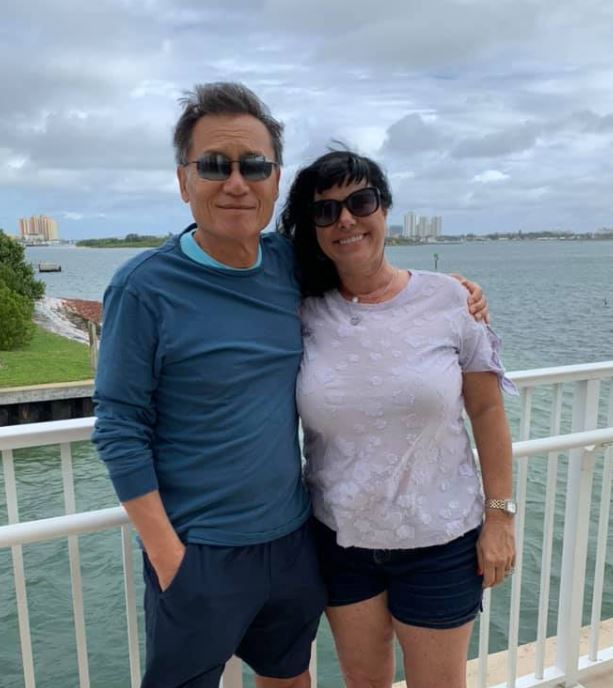The story of Lou Pai and Enron is one of ambition, power, and ultimately, betrayal. It serves as a cautionary tale about corporate governance and the ramifications of unethical business practices. Enron, once a titan of the energy industry, became synonymous with corporate fraud, and Lou Pai's role in this saga is both fascinating and complex. In this article, we will explore the life and career of Lou Pai, the rise and fall of Enron, and the lessons learned from this monumental scandal.
Born in 1958, Lou Pai emerged as a key player at Enron, holding various executive positions throughout his tenure. His journey within the company is marked by significant achievements, but also by the ethical dilemmas that would eventually lead to Enron's collapse. Understanding Lou Pai's background and decisions can help us comprehend how such a devastating financial disaster could occur.
This article will delve into the intricate details of Lou Pai's career at Enron, the company's practices that led to its downfall, and the broader implications for corporate America. By the end of this piece, readers will gain a comprehensive understanding of Lou Pai's involvement in Enron and the lessons that can be drawn from this infamous case.
Table of Contents
- Biography of Lou Pai
- Early Life and Education
- Career at Enron
- The Enron Scandal
- Life After Enron
- Lessons from the Enron Scandal
- Conclusion
- References
Biography of Lou Pai
Lou Pai is a significant figure in the history of American corporate scandals. Born in 1958 in the United States, he graduated from the University of California, Berkeley, with a degree in economics. He later earned an MBA from the University of Chicago. His academic background laid a strong foundation for his career in the energy sector, where he became known for his entrepreneurial spirit and innovative ideas.
Personal Data
| Name | Lou Pai |
|---|---|
| Birth Year | 1958 |
| Education | University of California, Berkeley; University of Chicago (MBA) |
| Profession | Businessman, Former CEO of Enron Energy Services |
| Notable Achievements | Key role in developing Enron's trading business |
Early Life and Education
Lou Pai's journey began in a modest setting where he demonstrated strong academic prowess from a young age. His passion for economics and business led him to pursue higher education, culminating in a prestigious MBA that equipped him with the skills necessary to navigate the corporate world. His early experiences and education played a crucial role in shaping his career trajectory.
Career at Enron
Pai joined Enron in 1989, initially working in the company's gas pipeline division. His ability to identify lucrative opportunities and his innovative mindset quickly propelled him through the ranks. He played a pivotal role in establishing Enron Online, which revolutionized the way energy was traded, allowing for greater efficiency and transparency in the market.
The Rise of Enron
Under Pai's leadership, Enron expanded its operations and diversified its offerings, becoming a leader in the energy sector. The company's aggressive business strategies and willingness to take risks paid off, leading to unprecedented growth and profitability. However, this relentless pursuit of success also laid the groundwork for the unethical practices that would later come to light.
The Enron Scandal
Despite its successes, Enron was engaging in dubious accounting practices to hide its debt and inflate profits. The scandal erupted in 2001 when these practices were exposed, leading to the company's bankruptcy and the loss of thousands of jobs and billions of dollars in investor money. Lou Pai's role in this scandal is particularly notable, as he was one of the executives who benefitted from the company's deceptive practices.
Lou Pai's Decisions
- Participation in off-balance-sheet entities to conceal debt
- Exercising stock options and selling shares before the collapse
- Leaving Enron just months before the scandal broke
Life After Enron
After the collapse of Enron, Pai faced significant scrutiny and legal challenges. He was not charged with any crimes, but his reputation was irrevocably damaged. Following Enron, he shifted his focus to private investments and has largely remained out of the public eye, living a quiet life away from the corporate spotlight.
Lessons from the Enron Scandal
The Enron scandal serves as a stark reminder of the importance of ethical business practices and corporate governance. Key lessons include:
- The necessity for transparency in financial reporting
- The importance of a strong ethical culture within organizations
- The need for regulatory oversight to prevent corporate fraud
Conclusion
In conclusion, Lou Pai's involvement with Enron highlights the complexities of corporate America and the potential consequences of unethical behavior. The Enron scandal not only led to significant financial losses for many but also prompted widespread reforms in corporate governance. It is crucial for current and future business leaders to learn from this history to ensure ethical practices are upheld in their organizations. We encourage readers to reflect on these lessons and consider the implications for their own professional conduct.
References
- Healy, P. M., & Palepu, K. G. (2003). "The Fall of Enron." Journal of Economic Perspectives, 17(2), 3-26.
- McLean, B., & Elkind, P. (2003). "The Smartest Guys in the Room: The Amazing Rise and Scandalous Fall of Enron." Penguin Press.
- United States Securities and Exchange Commission. (2002). "Report of Investigation Pursuant to Section 21(a) of the Securities Exchange Act of 1934."




